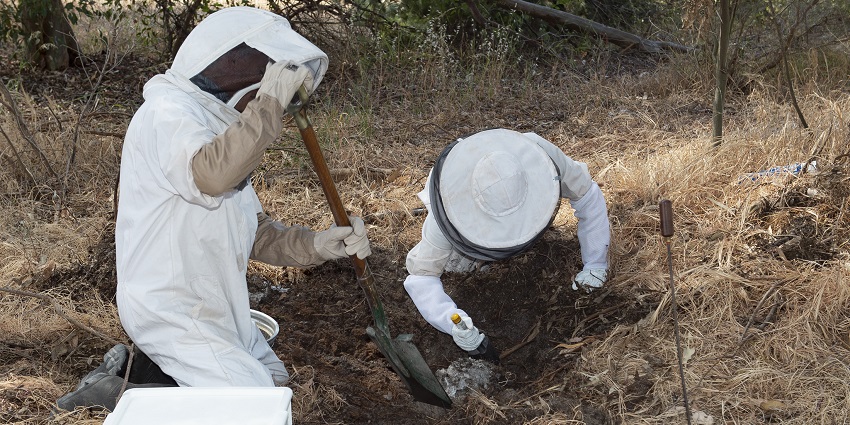
With summer approaching, Perth residents are encouraged to be aware of European wasps and look first before eating and drinking outdoors to make sure there are no nasty surprises.
The Department of Primary Industries and Regional Development (DPIRD) is launching its annual European wasp surveillance campaign in November and has issued a reminder that wasps can hide in drink cans or land on food, particularly meat and fish.
European wasps are one of the world’s worst social pests, having the potential to impact our health and outdoor lifestyle, agricultural industries and the environment.
The department aims to build on the State’s recent success in combatting European wasps, encouraging members of the public to ‘adopt’ a surveillance trap and monitor it during the upcoming wasp season, from November to May.
DPIRD’s adopt-a-trap program is a key part of the annual European wasp surveillance and eradication effort, with trapped wasps helping identify suburbs where nests may be located so they can be tracked down and destroyed.
Nest numbers from last year’s surveillance program dropped to the lowest level in 12 years, with only 14 nests found, down from 162 in 2019.
Residents in Perth and regional areas are encouraged to support the 2021-22 campaign by looking for and reporting any signs of the declared pest.
Department technical manager John van Schagen said the program’s success was the result of three years of sustained efforts to detect, delineate and extinguish wasp hotspots.
“WA is unique in the world for having prevented the establishment of European wasps for such a long time, with the community playing a critical role in the early detection of this pest,” Mr van Schagen said.
“Last year’s great results can be attributed to additional resourcing, collaboration with local government, other departments and the community, along with strong community reporting.”
This year more than 2300 traps will again be deployed across Perth and regional areas by Christmas to detect the presence of European wasp.
“Summer is the best time to locate nests as wasps leave to scavenge for food, making them easier to detect and trace back to their nest,” Mr van Shagen said.
“Most European wasp nests are concealed underground, so wasps that fly in and out of a single hole in the ground should be reported.”
European wasps look similar to yellow paper wasps but are distinguished by their completely black antennae and shorter legs, which they tuck up under their body when they fly.
Reports of suspect European wasp sighting can be made via the department’s
MyPestGuide Reporter app, or by contacting the Pest and Disease Information service on 08 9368 3080 or padis@dpird.wa.gov.au.
Anyone wanting to sign up to the adopt-a-trap program can sign up online.
More information about European wasps, can be found on the department’s website agric.wa.gov.au/biosecurity-biosecurity-quarantineeuropean-wasp-declared-pest
Photo caption: DPIRD officers remove a European wasp nest which are concealed underground.
Media contact:
Megan Broad/Donna Coleman, media liaison, +61 (0)8 9368 3937


